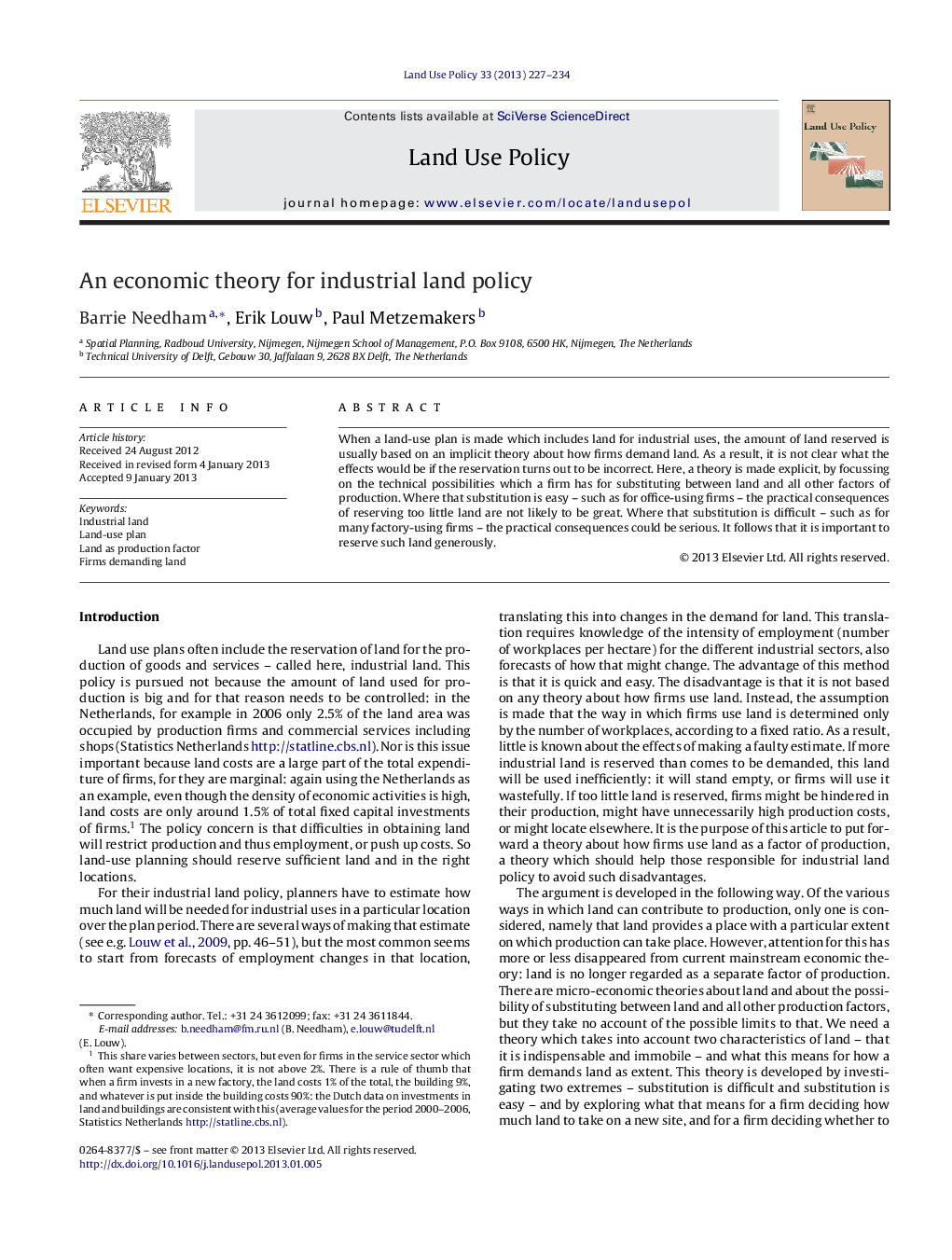| کد مقاله | کد نشریه | سال انتشار | مقاله انگلیسی | نسخه تمام متن |
|---|---|---|---|---|
| 93147 | 160114 | 2013 | 8 صفحه PDF | دانلود رایگان |
When a land-use plan is made which includes land for industrial uses, the amount of land reserved is usually based on an implicit theory about how firms demand land. As a result, it is not clear what the effects would be if the reservation turns out to be incorrect. Here, a theory is made explicit, by focussing on the technical possibilities which a firm has for substituting between land and all other factors of production. Where that substitution is easy – such as for office-using firms – the practical consequences of reserving too little land are not likely to be great. Where that substitution is difficult – such as for many factory-using firms – the practical consequences could be serious. It follows that it is important to reserve such land generously.
► Land-use planning for employment uses requires knowledge of how firms use land.
► Firms can substitute between land and (capital + labour) but only within limits.
► If those limits are unknown, land-use planning can hinder firms.
► For firms which cannot substitute easily, planning should zone land generously.
Journal: Land Use Policy - Volume 33, July 2013, Pages 227–234
